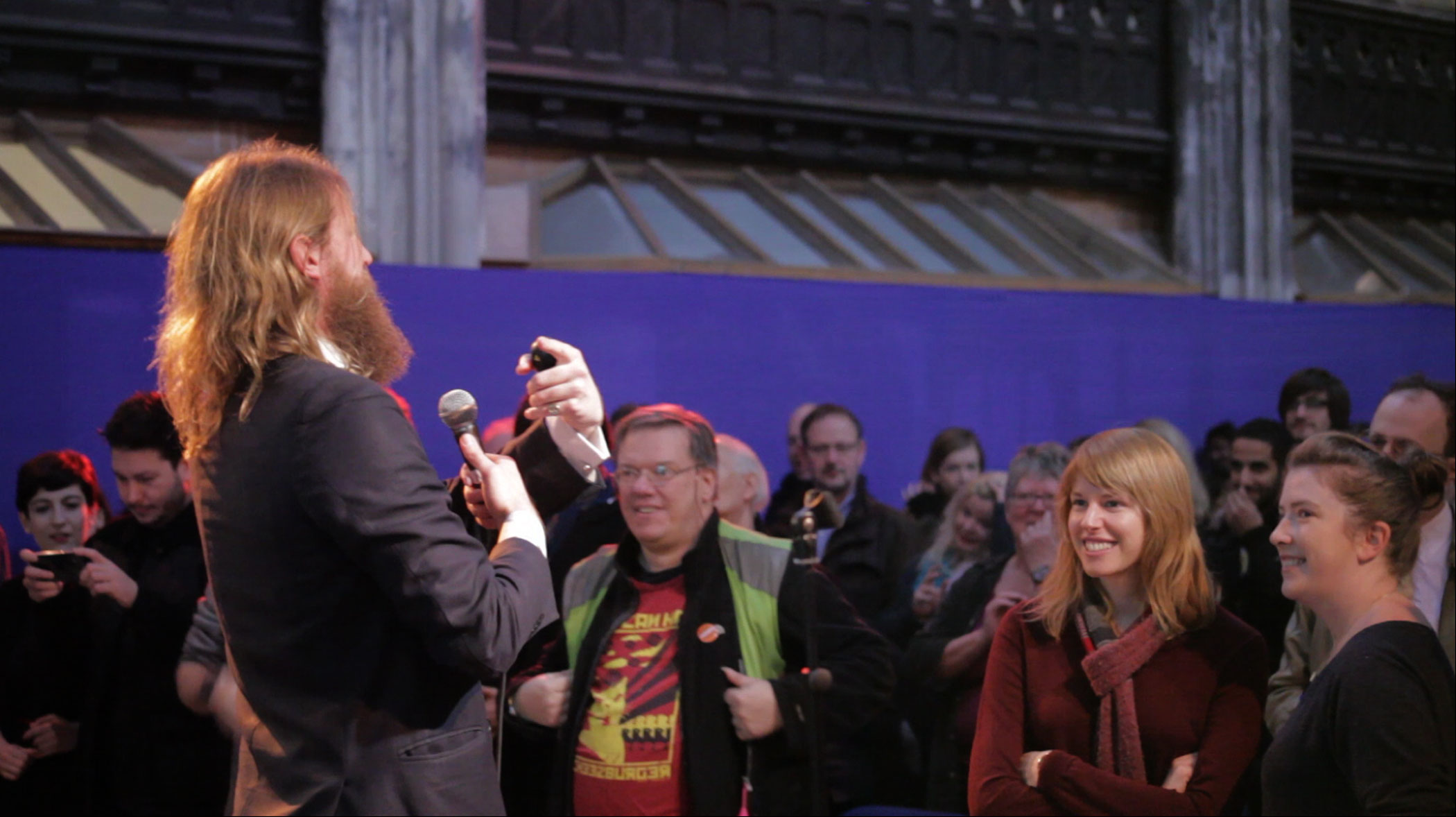 Two weeks ago on a Sunday morning in Islington, North London, a group of people gathered in a old church building for a service of hymns and sermons. So far, so uncontroversial. But this was not a Christian gathering, it was the first meeting of the Sunday Assembly; London's first atheist church. Since that Sunday the assembly's founders Sanderson Jones and Pippa Evans have found themselves at the centre of a great deal of media attention. While much of it has been from fellow atheists, they have drawn a significant interest from Christians and, surprisingly, support from them too.
Two weeks ago on a Sunday morning in Islington, North London, a group of people gathered in a old church building for a service of hymns and sermons. So far, so uncontroversial. But this was not a Christian gathering, it was the first meeting of the Sunday Assembly; London's first atheist church. Since that Sunday the assembly's founders Sanderson Jones and Pippa Evans have found themselves at the centre of a great deal of media attention. While much of it has been from fellow atheists, they have drawn a significant interest from Christians and, surprisingly, support from them too.
A church for atheists is hardly something you'd expect to find a Christian taking much interest in. The idea of such a church could seem to be atheists having their cake and eating it, cherry picking the nice, feel- good, community stuff from religion without going through the hassle of worship and belief. But, in the eyes of many Christians, the Sunday Assembly has held a mirror up against British Christianity and has provoked a lot of soul searching.
Yesterday morning I was invited by Premier Christian Radio to chat with two Christians, one a liberal blogger and the other a Church of Scotland minister, about the Sunday Assembly. Between them they represented the two main Christian responses to the Sunday Assembly and painted a fascinating picture of how Christians in Britain are responding to an increasingly non-religious country.
On one side was the minister – David Robertson – representing the negative Christian response that many might expect. He insisted that there was "no true community without Christ" and predicted that the Sunday Assembly's founders would eventually realise this and turn Christian. The minister saw the Assembly as the logical conclusion of liberal Christian movements who placed more emphasis on songs and feelings in their services than on traditional religion. This to me felt very similar to the type of conservative Christian voices who tell atheists that they can never truly enjoy Christmas without believing in God, whose ideas are proved wrong on a daily basis by those who do live good, thoughtful lives without ever dipping into any holy book.
More interesting was the response of Christian blogger Simon Jenkins who said that the Sunday Assembly was "a place where Christians should be". He acknowledged that much of what church is for Christians could be found in the Sunday Assembly and without necessarily any religious foundation. As British Christianity struggles to connect, Sanderson and Pippa's fresh, engaging approach to community seems more of a model than a threat for Jenkins. His openness is certainly refreshing but I couldn't help wondering- doesn't the Sunday Assembly do such a good job precisely because of the absence of faith? Whether the Christian version of the Assembly (yes, a Christian version of an atheist version of a Christian service) would have more to offer because of its religious nature is far from clear. The success of a non-religious community-spirited gathering like the Sunday Assembly suggests to me that the argument has been settled in favour of the secular.
I doubt Pippa and Sanderson imagined their Sunday service causing an identity crisis within Christianity. As an atheist it is a fascinating, and pleasing turn of events and generated a very interesting discussion. You can hear it on Premier Christian Radio on Saturday 26th at 2:30 tomorrow or on their podcast afterwards.
[Photo courtesy of Nimrod Kamer and Tom Bell]

